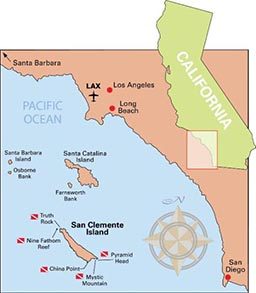The Guardian newspaper recently featured an on-line
article, Fiji
wrestles with plans to restore Indigenous rights over world-famous surf breaks. The story relates how the Fijian government
is seeking to return customary rights to govern marine areas – known as
qoliqoli – back to the Indigenous people.
This move would allow those people “to be compensated for tourism
operations on the reefs and fishing grounds that have formed their livelihoods.”
The article notes that “until 2010, access to Cloudbreak,
one of the world’s most famous surf waves, was barred to Fijian locals, due to
an exclusivity deal with a high-end resort from the early 80s….In 2010, the
Frank Bainimarama-led military dictatorship introduced a surfing decree,
banning payments for the use of Fiji’s reefs, lagoons and beaches, and putting
an end to all exclusivity deals….The Bainimarama decree meant open season on
the waves for tourists and locals. This gave rise to a crop of young surfers,
including Fiji’s first professional surfer – but trampled over customary marine
rights, cutting (Indigenous people) out of decision-making or profits as
foreign-owned resorts sprang up and surf tourism boomed….Now, the Fijian
government wants to return the rights to govern marine back to the Indigenous
people, allowing (them) to be compensated for tourism operations on the reefs
and fishing grounds that have formed their livelihoods.”
Reading the article reminded me a visit to a Fijian village,
Somosomo, while on a dive trip aboard M/V
Naia in October 2017. During the
visit, the village leader during our welcoming ceremony explained that the
residents are the “traditional guardians of the reef” and that its resources
provide much for the village. I sensed a
protection ethic among the people and pride in their stewardship role. I spoke and thanked the village for their
guardianship as it had allowed us to see many wonderful sights.
Prior to departing Alaska to travel to Fiji and following
the advice in the information packet provided by Naia, I purchased a number of
school supplies for the village including pencils, crayons, and coloring
books. The coloring books I chose had an
Alaska theme. I wonder sometimes if those items resulted in amazement and wonder for some of the youngsters about a place cold and snowy.
During our tour of the village, we learned that the older
children are sent to a neighboring village during the week to attend
school. During our visit, we met mostly
younger children of what I would guess would be preschool age. They were very shy at first. One of them approached me and motioned that
she wanted “up”. I lifted her to face
level, said “hello, my name is Jim, would you like to go higher?” at which
point I lifted her into the air above my head while saying “wheeeee.” The resulting giggles proved that laughter is
the universal language. It also attracts
other children who want to enjoy the same experience. Suddenly, I am surrounded by children all
waiting their turn. It was
wonderful. I am also thankful for my
weightlifting routine at home that included overhead presses.
We did encounter a form of “exclusivity” offshore of the
privately-owned Wakaya Island, home to the Wakaya Club and Spa. On October 15, 2017, we anchored in a bay a distance from the Club
but still within sight of the buildings and boarded the tenders for a quick
ride to the dive site.
We descended the 100-foot wall to find the den of the
blue scorpion fish. As part of the
group, my buddy and I waited our turn to approach the den. By the time our turn came, the fish had
become spooked and pulled back into its hole.
The rest of the dive was spent checking out other life along the wall,
such as the abundant anemone fish and the regal lionfish. While I was observing a pipefish, my buddy
pointed out a resting white tip shark.
It was a wonderful dive, 98 feet for 47 minutes.
Upon returning to the boat, we were informed of the need
to relocate to another anchorage. The
resort had contacted the boat during our dive and objected our presence stating
that their area was private and exclusive.
The skipper insisted that he had an email from the Fisheries Department
stating that the boat could anchor in that location. The resort responded that an email was not
sufficient; they wanted a formal letter issued by the Fisheries
Department.
Apparently, the resort was concerned about the privacy of
its guests. We had many dedicated marine
wildlife photographers on board not paparazzi taking pictures of their guests
for the tabloids. We moved to another
spot since we were done with the dive and to avoid any further hurt feelings or
complications. According to Wikipedia,
guests on the island have included “Nicole
Kidman and her husband Keith Urban, Bill Gates and his wife Melinda, Steve
Jobs, Rupert Murdoch, George Lucas, Michelle Pfeiffer, David E. Kelley, Robert
Zemeckis, Paris Hilton, Tom Cruise, and Keith Richards (who was hospitalised
after falling from a coconut tree).”
According to their website,
the current rate (2025) for a visit ranges from $2,500 to $11,000 per night for
two guests with discounts for multiple day stays.


















.jpg)



